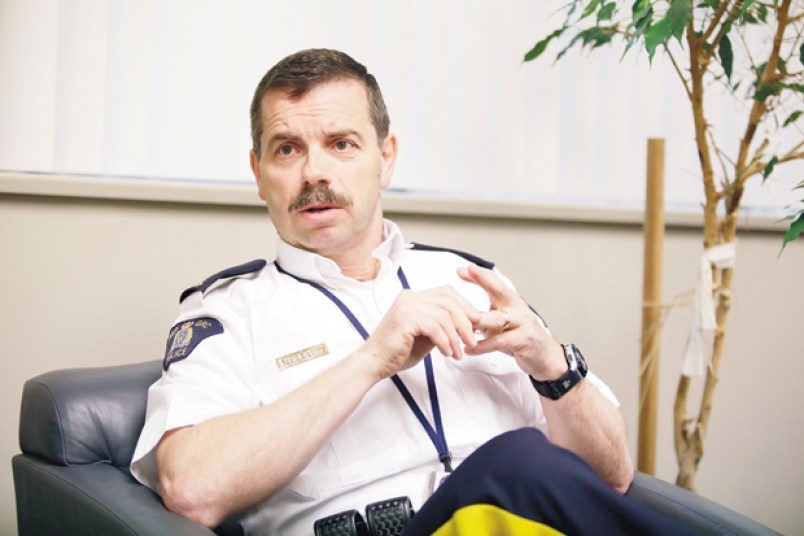The Coquitlam RCMP is requesting more resources to deal with the growing number of residents in the community struggling with mental health and addiction issues.
Supt. Sean Maloney told city council during budget discussions Tuesday “numerous clients” who are well-known to police make up a disproportionate number of the overall call volume. He said focusing on these individuals would assist them in getting the help they need while easing pressures on police staffing levels.
“Until we actually spend time and resources focused on dealing with these people, our call volume is going to increase,” Maloney said. “What we need to do is get these people off the street and into help, obviously.”
Maloney is asking for three new full-time municipal employees at a cost of $201,400 to free up officers for the detachment’s Community Response Team (CRT), whose mandate is to deal with social issues in the community.
“The pressure to our frontline people has increased,” Maloney said. “We wanted to utilize the CRT to work further in that field… as opposed to putting more people on the watches that just respond to calls.”
Another issue is what to do with people once they have been taken into custody.
Under the Mental Health Act, officers are obligated to stay with a person if they need to be taken to hospital in mental distress. Maloney said it is not uncommon for his officers to spend five or six hours at Royal Columbian Hospital (RCH) waiting for a mental health physician to take custody of a patient.
“That is almost a whole shift for one officer,” he said. “We will quite often go there three or four times in a shift… You could have half your shift waiting at the hospital.”
Mayor Richard Stewart said in his discussions with RCH officials, he was told the triage policy is to deal with physical issues first, which means a person in mental distress often has to wait hours for a doctor before being admitted into a psychiatric ward. He suggested council consider sending a letter to the provincial government requesting that a solution be found.
Getting someone to the hospital is only the first step, said John DuMont, Coquitlam’s deputy city manager. Without adequate mental health facilities, like one the city has been advocating for at Riverview Hospital, difficulties getting people with mental health and addiction issues off the street will continue.
“The system, to some degree, is broken,” DuMont said during Tuesday’s budget discussions. “Ultimately, there needs to be beds for these people to go to and there is a lack of beds.”
In an a statement to The Tri-City News, Fraser Health said it understands the issue and is working with officers to get them back on duty in a timely manner. Tasleem Juma, public affairs senior consultant, said the health authority routinely meets with Coquitlam RCMP to share suggestions and experiences that can improve its intake process. “We have seen improvements in our wait times and will continue to work with our law enforcement partners to further reduce our turn-around times,” she said.
gmckenna@tricitynews.com



